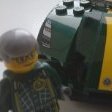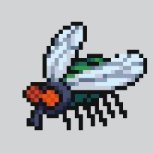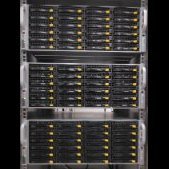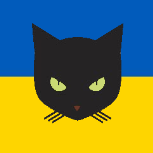Leaderboard
Popular Content
Showing content with the highest reputation on 12/08/23 in all areas
-
da es vermehrt zu Fragen wie, was, wo in diesem thread kommt, hier nochmals der Hinweis mit der Bitte die Fragen einfach im normal Part zu tätigen, Danke.5 points
-
@FoxxMD sorry for the trouble 😅 My scripts are available here : https://github.com/grokuku/stable-diffusion but I think you got everything 👍2 points
-
The 015 would explain it as the leading 0 means it is treated as octal number and 015 in octal is 13 in decimal2 points
-
There is no variable that control that. However, you can add the following to the "Automated Media Center: Custom Options" setting: --def movieDB=TheMovieDB --def seriesDB=TheTVDB2 points
-
The UD Plus option is an additional plugin that provides extra functionality over the basic UD plugin, but needs the basic plugin to be already installed before the Plus one can be added.2 points
-
Ja. Dieser NIC auf Linux ist ein zustand… Das ist fällt leider auf Realtek zurück, hauptsache massig chips verkaufen aber keinen Treiber support für Linux liefern und sich auf die Community verlassen. Sorry, is leider so und ich bin das Thema mit den Realtek chips leid. Dann musst du wohl zurück auf die alte version von Unraid und musst warten bis die Community im Kernel den Treiber fixt. Traurig aber wahr. Naja ned Amis ist es ziemlich egal ob die 1W oder 100W mehr brauchen übertrieben gesagt. Leider nicht weil dies ein Kernel thema ist und ein generelles Linux Thema. Du solltest das im Kernel GitHub melden. Es kotzt mich schon so an das immer Limetech angekreidet wird und niemand versteht das die auch unter der Haube nur den Linux Kernel verwenden der bei jeder Distribution der gleiche ist. Wah und schon wieder Themenverfelung, die Treiber kommen von Kernel und wenn du die gleich version vom Kernel auf Ubuntu verwendest hast du genau das gleiche Fehlerbild. Sorry ich bin hier raus mich kotzt das so an das immer Unraid schuld ist obweohl es eigentlich ein Kernel thema ist. Ich beteilig mich nicht mehr an so threads. Sorry das ich hier drin überhaupt gepostet hab.2 points
-
Make sure that you deleted and recreated the UDP and Game port items so you can correctly map the new ports. Also, Hasheim is showing 0.0.0.0 because the container isn't running, so there's no IP yet.2 points
-
Ja, sollte kein Problem sein, solange Du den "alten" Server aus dem Spiel nimmst und ihn nicht mit der gleichen IIP nochmal im gleichen LAN startest. Wenn Clients damit nicht klarkommen, dann weil ihr ARP cache nicht schnell /oft genug gelöscht wird...ein Neustart dieser Geräte (zB Smart Home Plugs) sollte das behheben.2 points
-
FWIW, I found this method in Reddit that seemed to work for me until they fix the log bug. But note if you have qbittorrent internet facing, it's a risk. Adding this line under [Preferences], in the config file, works, for setting the default password manually to: adminadmin WebUI\Password_PBKDF2="@ByteArray(ARQ77eY1NUZaQsuDHbIMCA==:0WMRkYTUWVT9wVvdDtHAjU9b3b7uB8NR1Gur2hmQCvCDpm39Q+PsJRJPaCU51dEiz+dTzh8qbPsL8WkFljQYFQ==)"2 points
-
Hello all, I use the appdata backup pluggin for all my apps, however I want to make double sure that I have no issues retrieving my passwords for Bitwarden in the event of a system failure. As such, would the following script work in backing up my Bitwarden passwords to G-Suite via Rclone crypt (I'll set it to run daily); sudo docker stop bitwardenrs rclone copy /mnt/user/appdata/bitwarden/ GoogleDriveBackupCrypt:unraid/Bitwarden_Backup sudo docker start bitwardenrs This is my first attempt at any sort of script that I haven't simply copied and pasted from a tutorial. Many thanks. ***Edit*** It works, well when I press "run in background" anyway, so should be ok running via schedule. It's the simplest script I think you could run, but I'm quietly pleased I managed it myself. 😂1 point
-
Hi Guys. I have written a couple of scripts. These will download custom vm icons and gui banners from a website repo to a choosen folder on array. Then install them from there into the vm manager, by rsync to /usr/local/emhttp/plugins/dynamix.vm.manager/templates/images Before we used to add them to flash drive and copy with the go file as server started. Well now with Squids great user script plugin we can copy them after boot from the array. My plan is for us all to be able to create custom icons and share them through these scripts with other users. Please create any icons and upload them somewhere. Then post a link here in this thread and I will add them to the website repo. Hopefully us building a “community vm icons” If you would like to see what is there so far please goto Icons www.spaceinvader.one/unraidvmicons/ Banners www.spaceinvader.one/unraidbanners/ For example usage of an icon. I made this one (I know not great, but you get the idea!) Having the nvidea logo in the windows icon I know this vm is the one I have passed through my 1070, not the vnc one. There are 2 scripts that make this work. 1. Icon_banner downloader This script has 2 settings. First setting, to download all icons in category folders to a choosen location on the array. From here user copies the icons he or she likes to in that directory called store. From store script 2 syncs these icons with vm manager on array startup or manually Second setting, the script downloads all icons without category folders straight to the store folder and then rsyncs them vm manager with no user control (ie you cant pre select icons synced with this setting) This script also downloads custom banners to separate folder The script also has push notification for either pushover or pushbullet. So when new icons or banners are downloaded server will send a message telling you how many new ones have been downloaded. No message will be sent if nothing new downloaded. 2 Icon sysnc This script runs to rsync the downloaded icons which user has sorted into the store folder. This is done automatically on array start or manually. I have created a video showing how to setup and use below. I hope you guys like this idea. Scripts are also in zip attached to this post ready for user plugins. Custom VM icons automatically downloaded and installed to unraid Script 1 #!/bin/bash #downloads custom icons from online icon repository to array then copies them into vm manager. # #set below to [0 - First copies icons to category folders, so you can choose which icons to have copied to the system] #set below to [1 - direct downloads all icons without categories then copies them to your system without user choice] direct_copy_icons="0" #set location on server for download of icons if above not set to direct downloadlocation="/mnt/user/test" # # #optional push notifications set below leave all settings below if none required # # #set whether to use pushnotication on download of new icons [0- none] [1-pushover] [2-pushbullet] pushnotifications="1" #pushover api (only fill in if set above to pushover above) apitoken="token=put your pushover token here" userkey="user=put your pushover user key here" #pushbullet api (only fill in if set above to pushbullet above) API="put your push bullet api key here" #dont change anything below here *********************************************************************************** # dirtemp=$downloadlocation"/icons/temp" dirstore=$downloadlocation"/icons/store" dirbanner=$downloadlocation"/icons/banners" #set function "pushnotice" to push type if [[ "$pushnotifications" =~ ^(1|2)$ ]]; then if [ "$pushnotifications" -eq 1 ]; then function pushnotice { curl -s \ --form-string $apitoken \ --form-string $userkey \ --form-string "message=$1" \ https://api.pushover.net/1/messages.json } echo "set for pushover" elif [ "$pushnotifications" -eq 2 ]; then function pushnotice { curl -u $API: https://api.pushbullet.com/v2/pushes -d type=note -d title="unRAID vm icons" -d body="$1" } echo "set for pushbullet" fi else function pushnotice { echo "$1" } fi if [ ! -d $dirtemp ] ; then echo "Setting up first folder $dirtemp " # make the temp directory as it doesnt exist mkdir -vp $dirtemp else echo "continuing." fi #check if array if banner location exist if [ ! -d $dirbanner ] ; then echo "Setting up banner folder $dirbanner " # make the temp directory as it doesnt exist mkdir -vp $dirbanner else echo "continuing." fi #check if array if store location exist if [ ! -d $dirstore ] ; then echo "Setting up second folder $dirtemp " # make the store directory as it doesnt exist mkdir -vp $dirstore else echo "All folders needed are already created continuing." fi if [[ "$direct_copy_icons" =~ ^(0|1)$ ]]; then if [ "$direct_copy_icons" -eq 0 ]; then # set download location to temp folder for user to sort echo "information: direct_copy_icons flag is 0. Icons will be copied to array first for manual sorting." download=$dirtemp #set wget to download with folder structure for user sorting get="-r -c -S -N -nH -e robots=off -np -A png -R index.html* http://spaceinvader.one/unraidvmicons/" getbanner="-r -c -S -N -nH -e robots=off -np -A png -R index.html* http://spaceinvader.one/unraidbanners/" #set what to do at end of script end=0 elif [ "$direct_copy_icons" -eq 1 ]; then # set download location to store folder then copy to system echo "information: direct_copy_icons flag is 1.Icons will be copied directly to system without user intervention" download=$dirstore #set wget to download without folder structure as direct to system get="-r -c -S -N -nH -e robots=off -nd -np -A png -R index.html* http://spaceinvader.one/unraidvmicons/" getbanner="-r -c -S -N -nH -e robots=off -np -A png -R index.html* http://spaceinvader.one/unraidbanners/" #set what to do at end of script end=1 fi else echo "failure: direct_copy_icons is $direct_copy_icons. this is not a valid format. expecting [0 - array first] or [1 - direct to system]. exiting." exit 1 fi echo "'______'''_______''_'''''_''__''''_''___''''''_______''_______''______'''___'''__''''_''_______'"; echo "|''''''|'|'''''''||'|'_'|'||''|''|'||'''|''''|'''''''||'''_'''||''''''|'|'''|'|''|''|'||'''''''|"; echo "|''_''''||'''_'''||'||'||'||'''|_|'||'''|''''|'''_'''||''|_|''||''_''''||'''|'|'''|_|'||''''___|"; echo "|'|'|'''||''|'|''||'''''''||'''''''||'''|''''|''|'|''||'''''''||'|'|'''||'''|'|'''''''||'''|'__'"; echo "|'|_|'''||''|_|''||'''''''||''_''''||'''|___'|''|_|''||'''''''||'|_|'''||'''|'|''_''''||'''||''|"; echo "|'''''''||'''''''||'''_'''||'|'|'''||'''''''||'''''''||'''_'''||'''''''||'''|'|'|'|'''||'''|_|'|"; echo "|______|'|_______||__|'|__||_|''|__||_______||_______||__|'|__||______|'|___|'|_|''|__||_______|"; echo "'''''''''''''''''''''''''___'''_______''_______''__''''_''_______'''''''''''''''''''''''''''''''"; echo "''''''''''''''''''''''''|'''|'|'''''''||'''''''||''|''|'||'''''''|''''''''''''''''''''''''''''''"; echo "''''''''''''''''''''''''|'''|'|'''''''||'''_'''||'''|_|'||''_____|''''''''''''''''''''''''''''''"; echo "''''''''''''''''''''''''|'''|'|'''''''||''|'|''||'''''''||'|_____'''''''''''''''''''''''''''''''"; echo "''''''''''''''''''''''''|'''|'|''''''_||''|_|''||''_''''||_____''|''''''''''''''''''''''''''''''"; echo "''''''''''''''''''''''''|'''|'|'''''|_'|'''''''||'|'|'''|'_____|'|''''''''''''''''''''''''''''''"; echo "''''''''''''''''''''''''|___|'|_______||_______||_|''|__||_______|''''''''''''''''''''''''''''''"; firstcount=$(find $dirtemp -type f | wc -l) firstcount2=$(find $dirstore -type f | wc -l) bannercount=$(find $dirbanner -type f | wc -l) sleep 10 wget $get -P $download wget $getbanner -P $dirbanner sleep 3 lastcount=$(find $dirtemp -type f | wc -l) lastcount2=$(find $dirstore -type f | wc -l) bannercount2=$(find $dirbanner -type f | wc -l) totalnew=$(($lastcount - $firstcount)) totalnew2=$(($lastcount2 - $firstcount2)) bannernew=$(($bannercount2 - $bannercount)) if [[ "$direct_copy_icons" =~ ^(0|1)$ ]]; then if [ "$direct_copy_icons" -eq 0 ]; then #display message echo "'''''''''''''''''''''''''''''''''''''''''''''''''''''''''''''''''''''''''''''''''"; echo "''''''''''''''''''''''''''''''''''''''''¶¶¶¶'''''''''''''''''''''''''''''''''''''"; echo "'''''''''''''''''''''''''''''''''''''''¶´´´´¶¶'''''''''''''''''''''''''''''''''''"; echo "'''''''''''''''''''''''''''''''''''''''¶´´´´´¶'''''''''''''''''''''''''''''''''''"; echo "''''''''''''''''''''''''''''''''''''''''¶´´´´¶'''''''''''''''''''''''''''''''''''"; echo "''''''''''''''''''''''''''''''''''''''''¶´´´¶''''''''''''''''''''''''''''''''''''"; echo "''''''''''''''''''''''''''''''''''''''¶¶¶¶¶¶¶¶¶¶¶¶'''''''''''''''''''''''''''''''"; echo "'''''''''''''''''''''''''''''''''''''¶´´´´´´´´´´´´¶''''''''''''''''''''''''''''''"; echo "''''''''''''''''''''''''''''''''''''¶´´´´´´´´´´´´¶'''''''''''''''''''''''''''''''"; echo "'''''''''''''''''''''''''''''''''''¶¶´´´¶¶¶¶¶¶¶¶¶¶¶''''''''''''''''''''''''''''''"; echo "'''''''''''''''''''''''''''''''''''¶´´´´´´´´´´´´´´´¶'''''''''''''''''''''''''''''"; echo "'''''''''''''''''''''''''''''''''''¶´´´´´´´´´´´´´´´¶'''''''''''''''''''''''''''''"; echo "''''''''''''''''''''''''''''''''''''¶´´´¶¶¶¶¶¶¶¶¶¶¶''''''''''''''''''''''''''''''"; echo "'''''''''''''''''''''''''''''''''''''¶´´´´´´´´´´´¶'''''''''''''''''''''''''''''''"; echo "''''''''''''''''''''''''''''''''''''''¶¶¶¶¶¶¶¶¶¶¶''''''''''''''''''''''''''''''''"; echo "'''''''''''''''''''''''''''''''''''''''''''''''''''''''''''''''''''''''''''''''''"; echo "'''''''''_______''___''''''___''''''''______'''_______''__''''_''_______'''''''''"; echo "''''''''|'''_'''||'''|''''|'''|''''''|''''''|'|'''''''||''|''|'||'''''''|''''''''"; echo "''''''''|''|_|''||'''|''''|'''|''''''|''_''''||'''_'''||'''|_|'||''''___|''''''''"; echo "''''''''|'''''''||'''|''''|'''|''''''|'|'|'''||''|'|''||'''''''||'''|___'''''''''"; echo "''''''''|'''''''||'''|___'|'''|___'''|'|_|'''||''|_|''||''_''''||''''___|''''''''"; echo "''''''''|'''_'''||'''''''||'''''''|''|'''''''||'''''''||'|'|'''||'''|___'''''''''"; echo "''''''''|__|'|__||_______||_______|''|______|'|_______||_|''|__||_______|''''''''"; echo "'''''''''__''''_''_______''_'''''_''''_______''_______''______''''_______''''''''"; echo "''''''''|''|''|'||'''''''||'|'_'|'|''|'''''''||'''''''||''''_'|''|'''''''|'''''''"; echo "''''''''|'''|_|'||'''_'''||'||'||'|''|''_____||'''_'''||'''|'||''|_'''''_|'''''''"; echo "''''''''|'''''''||''|'|''||'''''''|''|'|_____'|''|'|''||'''|_||_'''|'''|'''''''''"; echo "''''''''|''_''''||''|_|''||'''''''|''|_____''||''|_|''||''''__''|''|'''|'''''''''"; echo "''''''''|'|'|'''||'''''''||'''_'''|'''_____|'||'''''''||'''|''|'|''|'''|'''''''''"; echo "''''''''|_|''|__||_______||__|'|__|''|_______||_______||___|''|_|''|___|'''''''''"; echo "'__'''__''_______''__'''__''______''''''___'''_______''_______''__''''_''_______'"; echo "|''|'|''||'''''''||''|'|''||''''_'|''''|'''|'|'''''''||'''''''||''|''|'||'''''''|"; echo "|''|_|''||'''_'''||''|'|''||'''|'||''''|'''|'|'''''''||'''_'''||'''|_|'||''_____|"; echo "|'''''''||''|'|''||''|_|''||'''|_||_'''|'''|'|'''''''||''|'|''||'''''''||'|_____'"; echo "|_'''''_||''|_|''||'''''''||''''__''|''|'''|'|''''''_||''|_|''||''_''''||_____''|"; echo "''|'''|''|'''''''||'''''''||'''|''|'|''|'''|'|'''''|_'|'''''''||'|'|'''|'_____|'|"; echo "''|___|''|_______||_______||___|''|_|''|___|'|_______||_______||_|''|__||_______|"; echo "'''''''''''''''''''''''''''''''''''''''''''''''''''''''''''''''''''''''''''''''''"; echo "'''''''''''''''''''''''''''''''''''''''''''''''''''''''''''''''''''''''''''''''''"; echo "Sort your icons located at $dirtemp and put the ones you want into $dirstore" if [ "$lastcount" -gt "$firstcount" ]; then pushnotice "$totalnew new icons downloaded to $dirtemp ready for sorting" else echo "No new icons downloaded" fi elif [ "$direct_copy_icons" -eq 1 ]; then #rysnc downloaded icons to dynamix.vm.manager/templates/images then display message rsync -a $dirstore/* /usr/local/emhttp/plugins/dynamix.vm.manager/templates/images echo "'''''''''''''''''''''''''''''''''''''''''''''''''''''''''''''''''''''''''''''''''"; echo "''''''''''''''''''''''''''''''''''''''''¶¶¶¶'''''''''''''''''''''''''''''''''''''"; echo "'''''''''''''''''''''''''''''''''''''''¶´´´´¶¶'''''''''''''''''''''''''''''''''''"; echo "'''''''''''''''''''''''''''''''''''''''¶´´´´´¶'''''''''''''''''''''''''''''''''''"; echo "''''''''''''''''''''''''''''''''''''''''¶´´´´¶'''''''''''''''''''''''''''''''''''"; echo "''''''''''''''''''''''''''''''''''''''''¶´´´¶''''''''''''''''''''''''''''''''''''"; echo "''''''''''''''''''''''''''''''''''''''¶¶¶¶¶¶¶¶¶¶¶¶'''''''''''''''''''''''''''''''"; echo "'''''''''''''''''''''''''''''''''''''¶´´´´´´´´´´´´¶''''''''''''''''''''''''''''''"; echo "''''''''''''''''''''''''''''''''''''¶´´´´´´´´´´´´¶'''''''''''''''''''''''''''''''"; echo "'''''''''''''''''''''''''''''''''''¶¶´´´¶¶¶¶¶¶¶¶¶¶¶''''''''''''''''''''''''''''''"; echo "'''''''''''''''''''''''''''''''''''¶´´´´´´´´´´´´´´´¶'''''''''''''''''''''''''''''"; echo "'''''''''''''''''''''''''''''''''''¶´´´´´´´´´´´´´´´¶'''''''''''''''''''''''''''''"; echo "''''''''''''''''''''''''''''''''''''¶´´´¶¶¶¶¶¶¶¶¶¶¶''''''''''''''''''''''''''''''"; echo "'''''''''''''''''''''''''''''''''''''¶´´´´´´´´´´´¶'''''''''''''''''''''''''''''''"; echo "''''''''''''''''''''''''''''''''''''''¶¶¶¶¶¶¶¶¶¶¶''''''''''''''''''''''''''''''''"; echo "'''''''''''''''''''''''''''''''''''''''''''''''''''''''''''''''''''''''''''''''''"; echo "'''''''''''_______''___''''''___''''''''______'''_______''__''''_''_______'''''''"; echo "''''''''''|'''_'''||'''|''''|'''|''''''|''''''|'|'''''''||''|''|'||'''''''|''''''"; echo "''''''''''|''|_|''||'''|''''|'''|''''''|''_''''||'''_'''||'''|_|'||''''___|''''''"; echo "''''''''''|'''''''||'''|''''|'''|''''''|'|'|'''||''|'|''||'''''''||'''|___'''''''"; echo "''''''''''|'''''''||'''|___'|'''|___'''|'|_|'''||''|_|''||''_''''||''''___|''''''"; echo "''''''''''|'''_'''||'''''''||'''''''|''|'''''''||'''''''||'|'|'''||'''|___'''''''"; echo "''''''''''|__|'|__||_______||_______|''|______|'|_______||_|''|__||_______|''''''"; echo "'''''''___'''_______''_______''__''''_''_______''''__''''_''_______''_'''''_'''''"; echo "''''''|'''|'|'''''''||'''''''||''|''|'||'''''''|''|''|''|'||'''''''||'|'_'|'|''''"; echo "''''''|'''|'|'''''''||'''_'''||'''|_|'||''_____|''|'''|_|'||'''_'''||'||'||'|''''"; echo "''''''|'''|'|'''''''||''|'|''||'''''''||'|_____'''|'''''''||''|'|''||'''''''|''''"; echo "''''''|'''|'|''''''_||''|_|''||''_''''||_____''|''|''_''''||''|_|''||'''''''|''''"; echo "''''''|'''|'|'''''|_'|'''''''||'|'|'''|'_____|'|''|'|'|'''||'''''''||'''_'''|''''"; echo "''''''|___|'|_______||_______||_|''|__||_______|''|_|''|__||_______||__|'|__|''''"; echo "'''''''''''''''''''______''''_______''_______''______'''__'''__''''''''''''''''''"; echo "''''''''''''''''''|''''_'|''|'''''''||'''_'''||''''''|'|''|'|''|'''''''''''''''''"; echo "''''''''''''''''''|'''|'||''|''''___||''|_|''||''_''''||''|_|''|'''''''''''''''''"; echo "''''''''''''''''''|'''|_||_'|'''|___'|'''''''||'|'|'''||'''''''|'''''''''''''''''"; echo "''''''''''''''''''|''''__''||''''___||'''''''||'|_|'''||_'''''_|'''''''''''''''''"; echo "''''''''''''''''''|'''|''|'||'''|___'|'''_'''||'''''''|''|'''|'''''''''''''''''''"; echo "''''''''''''''''''|___|''|_||_______||__|'|__||______|'''|___|'''''''''''''''''''"; echo "'''''''''''''''''''''''''''''''''''''''''''''''''''''''''''''''''''''''''''''''''"; echo "'''''''''''''''''''''''''''''''''''''''''''''''''''''''''''''''''''''''''''''''''"; echo " Icons are now ready to use and available in vm manager. " if [ "$lastcount2" -gt "$firstcount2" ]; then pushnotice "$totalnew2 new icons downloaded your vm manager" else echo "No new icons downloaded" fi fi else echo "." fi if [ "$bannercount2" -gt "$bannercount" ]; then pushnotice "$bannernew new banners downloaded to $dirbanner " else echo "No new banners downloaded" fi exit 0 script 2 #!/bin/bash # this script works with icon_banner downloader # It syncs the vm icon store on icon store folder on array with /usr/local/emhttp/plugins/dynamix.vm.manager/templates/images #set location on server for download of icons same location as icon_banner downloader else script will not work downloadlocation="/mnt/user/test" # do not change anything below this line dirstore=$downloadlocation"/icons/store" #check if above location exist if [ ! -d $dirstore ] ; then echo "$dirtemp does not exist please check you have icon_banner downloader script installed and run at least once and downloadlocation is set in this script the same " else echo "Ok evrything looks how it should. Syncing vm icon store with dynamix.vm.manager " fi rsync -a $dirstore/* /usr/local/emhttp/plugins/dynamix.vm.manager/templates/images sleep 5 exit icon_scripts.zip1 point
-
So first off thanks to spaceinvader for the groundwork: https://www.youtube.com/watch?v=TSlHEBR1yfY I decided to take this idea a bit further as I wanted to use SFTP with public key encryption to keep everything encrypted and I prefer to use open source software whenever possible. This took way longer then I care to admit to get working properly even though the end result is fairly simple. Also his video is an older version of unraid, the keyfile is no longer stored, so you have to create it yourself. This could be setup on an sftp web server if you trust it enough. or use the android app below. You will need to setup your phone to have a static IP address with your router for this to work. A static ip on your phone directly can work as well, but router is a better option. Install primitive ftpd on android, it is free and open source, I prefer to download from f-droid store. https://f-droid.org/en/packages/org.primftpd/ run primitive ftpd Select plain old file system and pick a folder you want to use (depending on version of android, you might need to use another file system, test and see what works for you, you can enable a password / not enable keys and use filezilla to test the connection before moving onto unraid) in settings: Disable all unsecrured log in / protocals including only starting sftp server Add username "unraid" remove password set sftp port to 2785 enable public key log in and make note of folder it wants the public key to be stored in I would also add the allowed IP pattern. Simply enter the LAN ip address of the unraid server (can use a * for the last number if the IP changes or you want more then just the unraid server to accsess the phone). This will prevent anyone not on a LAN from accessing the sftp server. Copy public key from unraid flash drive to temp share: cp /boot/config/ssh/ssh_host_rsa_key.pub /path/to/share/here Or just use file explorer to browse the flash drive if it is exported. rename the public key "authorized_keys" Copy to phone place the file in ".ssh" folder on main storage (it tells you correct folder in the primitive ftpd app), create if needed Command to create keyfile: Quick and dirty Side note, if you just want to build your array with encryption now since it is a royal pain to change later, you can simply add the below command directly to the go file. It is not secure but will get you going and you can get more advanced later. It is still better then nothing, simply yank the unraid USB and power cord from the computer and everything is secure. Personally I would recommend using an encrypted array if you think there is any chance you might wish you had it in the future, much much better to do it when first setting up unraid then trying to swap over later. echo -n 'password_here' > keyfile You will most likely need to change permissions to be able to copy it to your phone: chmod ugo+rwx keyfile Edit: This is technically an optional step but I would highly recommend it as it is far more secure and does not expose your actual array password in plain text. 1: Install p7zip from the nerdtools plugin (install nerdtools plugin if you have not already then search for p7zip) 2: Open terminal after the keyfile exists in root (of if doing this from the start, do this step just after creating the keyfile) 3: Run this command substituting a password of your choosing, do not use your array password as this password will be stored in plain text on the USB drive. 7z a -p'Password here no space between the p' -mx=9 -mhe -t7z key.7z keyfile copy it to temp share like before cp key.7z /path/to/share/here Copy to ftp folder you setup on phone This is the command to copy the keyfile to the server, be sure to update the IP address to yours: sftp -v -P 2785 -o identityfile=/boot/config/ssh/ssh_host_rsa_key unraid@FTP_IP_Address_Here:key.7z /root/key.7z Run this at least once directly on the server as it will ask you to confirm the connection and we need the file it creates Type "yes" at the prompt to remember the connection otherwise it will not work at boot. Now we need to copy the known_hosts file to the USB drive so it can be restored at boot cp .ssh/known_hosts /boot/config/ssh/known_hosts Make sure the sftp command worked by typing "ls" (LS but lower case) at root@NAS:~# Once you verified it is working, you just need to add it to the go file for unraid. Use notepad++ and open the go file in flash/config, do not use normal notepad, it will cause issues Paste in the below lines as new lines in the go file. mkdir -v /root/.ssh cp -v /boot/config/ssh/known_hosts /root/.ssh/known_hosts sftp -v -P 2785 -o identityfile=/boot/config/ssh/ssh_host_rsa_key unraid@your_ftp_address_here:key.7z /root/key.7z 7z x -p'unraidkeyfilepassword' /root/key.7z -o/root/ reboot and test it out. You should be able to see the output from these commands as the last few lines on the console at boot before it lists the IP address1 point
-
1 point
-
There are limitations until your first post is approved since we get a lot of spammers. This thread is where the replies are, so I will leave this one unlocked. I doubt that image in the other thread will be useful, but here is a link to it:1 point
-
1 point
-
Nein, geht eigentlich immer out of the box ... was mich etwas verwundert ist der command wolcmd.exe 52540051cabc 192.168.1.10 255.255.255.0 4343 ich nutze halt andere tools (Beispiel Homeassistant zum VM wol) aber das sieht für mich trotzdem nicht ok aus wolcmd.exe 52-54-00-51-ca-bc 192.168.1.10 255.255.255.0 würde mal so testen ... vor allem, was soll die 4343 am Ende ?1 point
-
Ich bin leider noch nicht so fest in Unraid, aber ich lerne gerade sehr viel dazu. Du meinst sicher den Plex Container bearbeiten und einen Pfad hinzufügen, oder? Wenn ja, leider finde ich den SMB Share dort auch nicht zur Auswahl. Kannst du mir sagen, was ich falsch gemacht habe? Edit: Sorry, ich habe im Verzeichnisbaum nicht nach oben navigiert. Habe die "remotes" gefunden. Vielen herzlichen Dank für eure Hilfe. Viele Grüße Hans1 point
-
The built in mover behaviour is set under Settings->Scheduler. You only need the plugin if you are trying to do more than the built-in capability.1 point
-
Neustarts hatte ich z.B. mit meinem alten ATX NT (650W Seasonic Platinum) womit ich das NAS die erste Zeit betrieben hatte wenn der Verbrauch vermutlich zu gering war (bzw halt mit --auto-tune). Das kam denke ich mal mit dem niedrigen Verbrauch des Systems nicht zurecht. Mir sind die Neustarts dann auch aufgefallen weil der Paritycheck angestoßen wurde. Seit dem 200W Inter-Tech (PicoPSU clone) keine Probleme mehr.1 point
-
1 point
-
Klingt nach wenig RAM denn Linux speichert höchst intelligent die Verzeichnisstrukturen etc. zwischen. Dazu wird ein Konglomerat aus LRU Techniken etc. verwendet. Da hilft ein Plugin auch nur begrenzt denn das macht nichts Anderes als diesen Zwischenspeicher, sollte er mal, wegen Maximalbelastung des Speichers, komplett leer sein, zu refreshen. Das geschieht dann aber zu einem Zeitpunkt zu dem das nicht unbedingt erforderlich wäre Ich würde a.) den Speicher ausbauen wenn möglich und b.) das einfach Linux überlassen. Bei Milliarden Installation weltweit klappt das ja auch.1 point
-
1 point
-
This is very strange, probably not the issue, but since I've never seen that before try setting the NIC to .15, not .015 as it is.1 point
-
Unraid does not try to spin down disks that have no partition. Once the partition is created on the disk, Unraid will try to spin down the disk regardless of whether or not there is a file system on the disk. It shouldn't cause any issues, just logs spin down messages.1 point
-
Warum postest Du die Screens hier nicht direkt in Deinen Posts?1 point
-
1 point
-
Nochmal, ich hab meine Lizenz bei Limetech gekauft. Nicht beim "Kernel". Also ist mein Ansprechpartner Limetech. Die können mir gerne sagen sie kümmern sich darum und melden es dann im Kernel Github. Ist so als müsste ich wenn ich ein iPhone mit einem Samsung Chipsatz kaufe bei einem iPhone Bug der auf einen fehlerhaften Chipsatz von Samsung zurückzuführen ist von Apple gesagt bekomme: "Klär das mit Samsung." Bitte... so funktioniert Produktsupport nicht auch wenn man es mehr und mehr so propagiert. Aber hast recht besser Ende der Diskussion, wir werden uns bzgl. unserer Meinung nicht einigen. Und ich will nicht streiten sondern nur meine Position dahingehend kundtun. Gruss, Joerg1 point
-
Werde es wohl auf pool laufen lassen, will jetzt doch garnicht probieren einfach pool backups machen täglich. Raspi will ich nicht haben soll alles auf einem system dann bleiben. Danke für euere Antworten 👍1 point
-
i compiled fish in Slackware 15 for use in unraid 6.10-6.11 . its very useful for beginners. Please put in /boot/extra for autoinstall on boot. fish - the friendly interactive shell fish is a smart and user-friendly command line shell for macOS, Linux, and the rest of the family. fish includes features like syntax highlighting, autosuggest-as-you-type, and fancy tab completions that just work, with no configuration required. official sites https://fishshell.com/ https://github.com/fish-shell/fish-shell fish-3.4.1-x86_64-1_da.txz fish-3.5.1-x86_64-1_da.txz fish-3.6.0-x86_64-1_da.txz you can find it on my github also https://github.com/masterwishx/Develop-Project fish-3.6.4-x86_64-1_da.txz fish-3.7.0-x86_64-1_da.txz fish-3.7.1-x86_64-1_da.txz1 point
-
i guess its not so clear what you mean, may rather ask in the german part ... howto use a external source in a docker on unraid1 point
-
Thanks, I did find your thread, but I don't believe it's relevant to my case. I have iGPU only, and no VFIO bindings AFAIK. I found at least one other person with a 13th Gen Intel that also seems to have lost iGPU access after 6.12.6. They also have a dGPU as well though, so I pointed them to your thread in the hopes it will help them. Not sure what the issue is for me though.1 point
-
1 point
-
Mal als aller erstes: USB Festplatten werden ausdrücklich NICHT empfohlen! Dein Problem rührt vermutlich daher, dass du dieselben Gehäuse nimmst und diese eben keine "echte" einzigartige Seriennummer angeben, sondern vermutlich dieselbe. Da UNRAID aber über die Seriennummern die Festplatten zuordnet, springt das System ständig hin und her, da es ja zweimal "dieselbe" Festplatte gibt. Deine Parity steckt offensichtlich in einem anderen Gehäuse daher ist die Seriennummer eine andere. Kurz und knapp: das wird so nichts, mach es lieber gleich richtig und verwende interne Festplatten1 point
-
1 point
-
Have a look at my post in the bug report section, I managed to resolve my own issue. It was a problem with my graphics card that was set as default output in BIOS but then bound via VFIO on boot for VM use. So it COULD be of your VFIO bindings on boot too.1 point
-
Along with a flash drive backup, I usually: Grab a diagnostic (full of useful info if things go sideways) A printout of the Main tab (array and drive assignments) Set array, docker and VM to not start automatically (I'll start them up manually at first, once I see things are working properly) Manually stop the array before updating (avoids any unclean shutdown) When all works perfectly, none of this is needed. But better to have it and not need it than...1 point
-
did you take any precautions/upgrade prep other than backing up your flash drive? I need to upgrade from 6.11.5 as well.1 point
-
I finally did it. Went from 6.11.5 to 6.12.6 No issues & very straight forward. Nvidia Driver updated fine. Thanks1 point
-
Did an upgrade from 6.11.4 to 6.12.6 and ... worked flawless. Docker, VMs ... everything fine.1 point
-
Haha I've been procrastinating the upgrade from 6.11.5 - any notable concerns jumping from 6.11.x straight to 6.12.6?1 point
-
Oh come on ! Just 50 mins after I updated to 6.12.5 ! *mumbles* I'll look into it later *mumbles*1 point
-
So, weitere Hardware ist auch bestellt: - MB Gigabyte B760M GAMING X DDR4 - CPU Intel i3-12100 - RAM Crucial 32GB DDR4 3200 - PSU be quiet! Pure Power 12 M 550W - USB Stick Transcend JetFlash 600 Extreme-Speed 8GB - USB Header zu USB Buchse für internen Verbau - Unraid Plus Lizenz Jetzt fehlt nur noch das Gehäuse, ich denke ich switche wie oben erwähnt auf das Define R6. Gruß, Chris.1 point
-
Hello All! As I'd alluded to in my earlier SR-IOV guide, I've been (...slowly...) working on turning my server config/deployment notes into something that'd at least have the opportunity to be more useful to others as they're using UnRAID. To get to the point as quickly as possible: The UnRAID Performance Compendium I'm posting this in the General section as it's all eventually going to run the gambit, from stuff that's 'generically UnRAID', to container/DB performance tuning, VMs, and so on. It's all written from the perspective of *my* servers though, so it's tinged with ZFS throughout - what this means in practice is that, while not all of the information/recommendations provided will apply to each person's systems, at least some part of them should be useful to most, if not all (all is the goal!). I've been using ZFS almost since it's arrival on the open source scene, starting back with the release of OpenSolaris back in late 2008, and using it as my filesystem of choice wherever possible ever since. I've been slowly documenting my setup as time's gone on, and as I was already doing so for myself, I thought it might be helpful to build it out a bit further in a form that could be referenced by others (if they so choose). I derive great satisfaction from doing things like this, relishing the times when work's given me projects where I get to create and then present technical content to technical folks... But with the lockdown, I haven't gotten out much, and work's been so busy with other things, I haven't much been able to scratch that itch. However, I'm on vacation this week, and finally have a few of them polished up to the point that I feel like they can be useful! Currently guides included are (always changing, updated 08.03.22): The Intro Why would we want ZFS on UnRAID? What can we do with it? - A primer on what our use-case is for adding ZFS to UnRAID, what problems it helps solve, and why we should care. More of an opinion piece, but with some backing data enough that I feel comfortable and confident in the stance taken here. Also details some use cases for ZFS's feature sets (automating backups and DR, simplifying the process of testing upgrades of complex multi-application containers prior to implementing them into production, things like that). Application Deployment and Tuning: Ombi - Why you don't need to migrate to MariaDB/MySQL to be performant even with a massive collection / user count, and how to do so Sonarr/Radarr/Lidarr - This is kind of a 'less done' version of the Ombi guide currently (as it's just SQLite as well), but with some work (in progress / not done) towards getting around a few of the limitations put in place by the application's hard-coded values Nextcloud - Using nextcloud, onlyoffice, elasticsearch, redis, postgres, nginx, some custom cron tasks, and customization of the linuxserver container (...and zfs) to get highly performant app responsiveness even while using apps like facial recognition, full text search, and online office file editing. Haven't finished documenting the whole of the facial recog part, nor elasticsearch. Postgres - Keeping your applications performance snappy using PG to back systems with millions of files, 10's or even hundreds of applications, and how to monitor and tune for your specific HW with your unique combination of applications MariaDB - (in progress) - I don't use Maria/MySQL much personally, but I've had to work with it a bunch for work and it's pretty common in homelabbing with how long of a history it has and the dev's desire to make supporting users using the DB easier (you can get yourself in a whole lot more trouble a whole lot quicker by mucking around without proper research in PG than My/Maria imo). Personally though? Postgres all the way. Far more configurable, and more performant with appropriate resources/tuning. General UnRAID/Linux/ZFS related: SR-IOV on UnRAID - The first guide I created specifically for UnRAID, posted directly to the forum as opposed to in github. Users have noted going from 10's of MB/s up to 700MB/s when moving from default VM virtual NIC's over to SR-IOV NICs (see the thread for details Compiled general list of helpful commands - This one isn't ZFS specific, and I'm trying to add things from my bash profile aliases and the like over time as I use them. This one will be constantly evolving, and includes things like "How many inotify watchers are in use... And what the hell is using so many?", restarting a service within an LSIO container, bulk downloading from archive.org, and commands that'll allow you to do unraid UI-only actions from the CLI (e.g. stop/start the array, others). Common issues/questions/general information related to ZFS on UnRAID - As I see (or answer) the same issues fairly regularly in the zfs plugin thread, it seemed to make sense to start up a reference for these so it could just be linked to instead of re-typing each time lol. Also includes information on customization of the UnRAID shell and installing tools that aren't contained in the Dev/Nerdpacks so you can run them as though they're natively included in the core OS. Hosting the Docker Image on ZFS - squeezing the most performance out of your efforts to migrate off of the xfs/btrfs cachepool - if you're already going through the process of doing so, might as well make sure it's as highly performant as your storage will allow You can see my (incomplete / more to be added) backlog of things to document as well on the primary page in case you're interested. I plan to post the relevant pieces where they make sense as well (e.g. the Nextcloud one to the lsio nextcloud support thread, cross-post this link to the zfs plugin page... probably not much else at this point, but just so it reaches the right audience at least). Why Github for the guides instead of just posting them here to their respective locations? I'd already been working on documenting my homelab config information (for rebuilding in the event of a disaster) using Obsidian, so everything's already in markdown... I'd asked a few times about getting markdown support for the forums so I could just dump them here, but I think it must be too much of a pain to implement, so github seemed the best combination of minimizing amount of time re-editing pre-existing stuff I'd written, readability, and access. Hope this is useful to you fine folks! HISTORY: - 08.04.2022 - Added Common Issues/general info, and hosting docker.img on ZFS doc links - 08.06.2022 - Added MariaDB container doc as a work-in-progress page prior to completion due to individual request - 08.07.2022 - Linked original SR-IOV guide, as this is closely tied to network performance - 08.21.2022 - Added the 'primer' doc, Why ZFS on UnRAID and some example use-cases1 point
-
sure the repo : https://github.com/devzwf/unraid-docker-templates Thanks1 point
-
No, but is is only available on the disk, and not on the partition. Click on the disk line (line with the mount button) and it should be available.1 point
-
Greetings, I have created a bug ticket on Qemu that addresses your issue: https://gitlab.com/qemu-project/qemu/-/issues/1613 There is a problem with how Qemu handles USB isochronous data transfers in Super Speed mode. Currently there is not much activity there, so it would be great if we could change this, so give it a thumbs up or add your report to this topic1 point
-
The feature has been available since 6.10beta35 but option to use the GUI was added in 6.11.1 for linux you need to create a mount point in the VM and then mount it. guest# mount -t virtiofs myfs /mnt Windows is a bit more complex as you need to load additional software. Follow this https://virtio-fs.gitlab.io/howto-windows.html But the step of loading mass storage driver I didn't have to do this step. Note there are reports of VMs locking up when using Virtiofs but I dont experience this on my systems so far.1 point
-
1 point
-
1 point
-
Maybe someone else has this issue: The plex client showed me that the plex server is outdated. It offers me to download the file "plexmediaserver_1.19.3.2843-e3c1f7bcd_amd64.deb" to manually install the update. After reading multiple threads on the plex forums, reddit and in this forums I was not successful by restarting, stopping/starting or changing some settings of the container. But finally I found an other method. On the docker tab I needed to enable the "advanced view": and after that clicking on "force update" installed the latest plex server version1 point





















.thumb.jpg.bec61e4e919a9235cc4475f8cb53d5e3.jpg)










